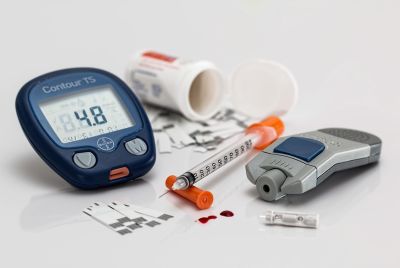Doctors warn against COVID-19 weight gain as it could result in weak immune system
Researchers saw an increase in purchases of calorie-packed foods and processed foods since March, which doctors fear could take a toll on the immune system.
The pandemic meant more people staying at home as the risk of getting infected seems to be a threat every time one goes out. However, along with less movement, doctors have seen an increasing number of individuals who have gained weight over the pandemic, which, they say, could also pose a danger to one's health, especially to one's immune system.
In a published peer-review study, changes in dietary habits were observed in many adults during the pandemic. Researchers saw an increase in purchases of calorie-packed foods as well as processed foods since March. The extended home confinement also took a toll on usual routines, and some found solace in carbohydrate-rich comfort foods.
Dr Mark Hyman, head of strategy and innovation at the Cleveland Clinic Center for Functional Medicine said that there is a need for a massive public health initiative that could educate people about the necessity of improving nutrition in the midst of the health crisis, as per ABC News. He added that many may have neglected the fact that quality and healthy food intake is also a way of preventing COVID-19.
A lifestyle medicine physician at Barnard Medical Center, Dr Jasmol Sardana said that the stress brought about by loss of jobs, work-from-home woes, schooling and the worries about the virus could lead individuals to gravitate towards calorie-dense foods, which could then result in having to deal with health issues.
She then enumerated that by eating healthy, people are giving their immune systems a boost. It can decrease the risk of diabetes, hypertension, high cholesterol and some cancers. Mental health is also supported by consuming nutritious foods.
Hyman underscored that the idea of preventing illnesses by strengthening one's immunity through nutrient-dense foods is not new. He revealed that consuming ultra-processed foods, which he pointed out to make up approximately 60 percent of the "Western diet" often have starches and sugars, which can contribute to inflammation. The CDC has also revealed that micronutrients, which could be gotten from high-nutrient foods, help in strengthening the immune response of the body and in suppressing inflammation.
Hyman suggested seeking healthier more nutritious foods. They could be whole grains, fruits, vegetables, nuts, beans, and seeds. Going for a healthier diet during the pandemic will work hand in hand with protocols imposed by authorities in protecting oneself from COVID-19.
© Copyright IBTimes 2025. All rights reserved.






















